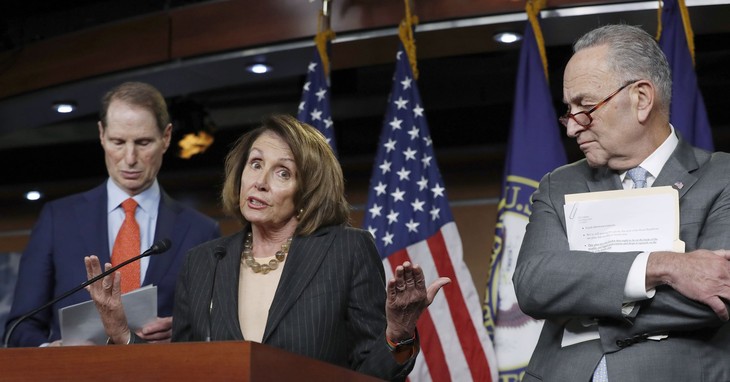We went into this week with Democrats believing there was a massive blue wave that would carry them into greater power in Washington D.C. In fact, they were so confident they tasked Eric Holder with working to swing state legislatures toward the Democrats again.
And to be fair, the Democrats appear to have had a major wave last night – white voters, as expected, broke more for Joe Biden than they did for Donald Trump four years ago. It appears to be enough to swing the election for Biden as of this column’s publication (that could change, but it’s a narrow chance at this time), but it was not enough to win as decisively as the Democrats were loudly proclaiming they would before this week.
Something else happened, though. There was also a red wave, and it was more pronounced. The GOP gained a state legislature, they didn’t lose but actually gained seats in the House, they held the Senate.
That shift of white voters to Biden was enough to swing Florida and Texas away from Trump, but a spike in the Hispanic vote for the GOP saved them. Even Politico is acknowledging that last night was an abject disaster for Democrats and their “blue wave.”
Today's Playbook: What Blue wave? TUESDAY WAS AN ABJECT DISASTER for Democrats in Washington. To imagine the amount of soul searching and explaining the party will have to do after Tuesday is absolutely dizzying. The infighting will be bloody — as it should be.
— Anna Palmer (@apalmerdc) November 4, 2020
As usual, Jim Geraghty says it way better than I ever will.
Maybe Nancy Pelosi isn’t the best leader to have in the House, and maybe Alexandria Ocasio-Cortez isn’t the best person to be the party’s rising star, and maybe Chuck Schumer is not all that great as a Senate minority leader. Maybe Democrats would be better off with a little more spotlight on figures such as Amy Klobuchar and Andrew Yang and John Delaney. They weren’t amazing presidential candidates, but they weren’t instantly antagonistic to everything associated with the opposition.
Maybe the craziest thought of all is that perhaps Democratic officeholders and candidates should interact with people who disagree with them, listen to their arguments and how they see the world, and see if they’ve had some wrong preconceived notions about the . . . er, deplorability of their political opponents.

It is very clear that the Democratic Party has no leadership and no winning direction. The leadership is made up mostly of old white politicians who are more focused on their power and position than they are with leading, and the rising stars are more focused on economic revolution than they are with representing the needs and desires of Americans. Last night was a rejection of both, and it puts the Democrats on the road to a civil war between the more centrist leadership and the young revolutionaries. There is no blue wave for a party as risk of this.
But working-class voters, especially minority ones, seem to be fleeing the Democratic Party. They are looking at the pre-covid economic success of Donald Trump and the economic failures of Barack Obama and seeking out the means to earn a living, own their own business, and provide for their families without the government’s interference. Increasingly, the Democratic policies that have made it easier for some people to cut corners via the government at the expense of those who work their fingers to the bone to make their way in the world is leaving that latter group feeling cheated and angry about it.
Meanwhile, social conservative values that focus on the family and strengthening it, respecting religious values, and seek reforms to failing education systems are becoming more appealing as a better way of seeking a certain social justice. Combining the economic and the social from this point of view appears to better explain the demographic shift we’re seeing.
Most importantly, though, we can confirm this through the down-ballot races last night. Donald Trump is a controversial and divisive candidate. If he wins, it is because the GOP carried him, not the other way around. Despite the “blue wave” of white voters, the down-ballot Republicans have largely outperformed the President and most of the significant gains in the GOP came from candidates who ran as their own person, and not as a Trump clone. Voters responded better to ideas than the cult of personality, and that is objectively a good thing for American electoral politics.
The fight is not over yet, though. The Presidential race is still up for grabs, but the data we have now indicates that a major demographic shift here is not a one-off occurrence, but part of a much larger trend.














Join the conversation as a VIP Member